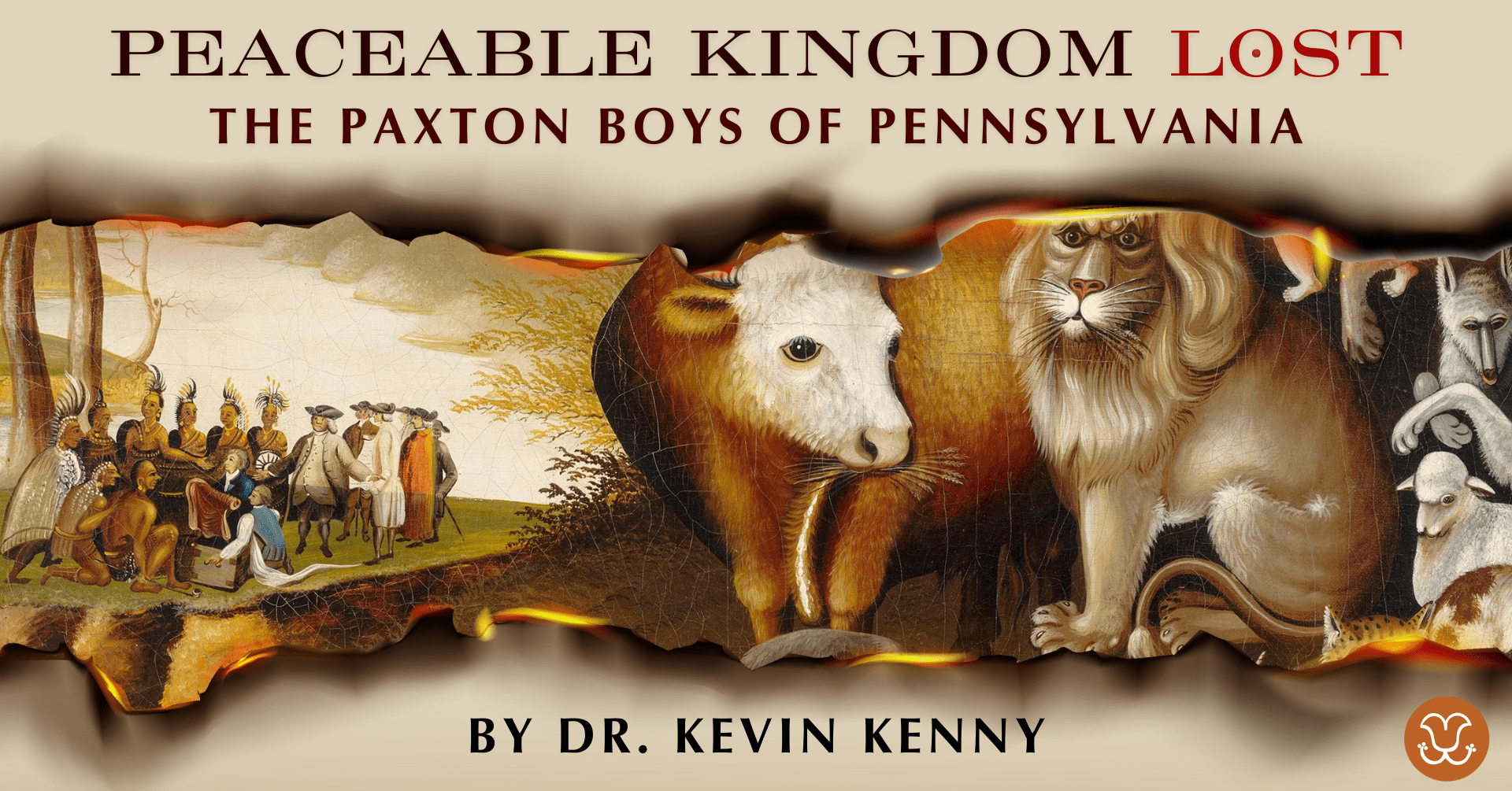

Guest speaker Kevin Kenny will share the story of the Paxton Boys, a group of vigilantes who led attacks on the indigenous peoples of Pennsylvania, first striking Conestoga Indiantown at dawn on December 14, 1763, then marching on Philadelphia in January of 1764 intent on killing more Lenape and Mohican people, under protection in the city. Follow the registration link to read more.
Register here for this “Pay-as-you-wish” Event
Admission is Pay as You Wish! Your donation is greatly appreciated. All proceeds benefit the development of future programming and the preservation of the History Center and its collections. The History Center is home to over 750,000 manuscripts, 100,000 photographs, and 70,000 artifacts. Your donation helps us to preserve and share those resources.
About the Speaker: Kevin Kenny is Glucksman Professor of History at New York University. His books include Making Sense of the Molly Maguires (Oxford University Press, 1998), The American Irish: A History (Longman, 2000), Peaceable Kingdom Lost: The Paxton Boys and the Destruction of William Penn’s Holy Experiment (Oxford University Press, 2009), Diaspora: A Very Short Introduction (Oxford University Press 2013), and The Problem of Immigration in a Slaveholding Republic: Policing Mobility in the Nineteenth-Century United States (Oxford University Press, 2023). Professor Kenny currently serves as Director of Glucksman Ireland House at New York University and as President of the Immigration and Ethnic History Society.
Presentation is via Zoom, and will be recorded and available for 7 days for all registered participants. We will email out a Zoom link the day of the presentation, and email a link to the recording within 24 hours. Note: the Zoom link emailed out the day of the presentation only takes you to the live presentation; the link emailed out the day after will contain the recorded version.
This presentation is made possible by the generous support of the Haverford Trust Company.